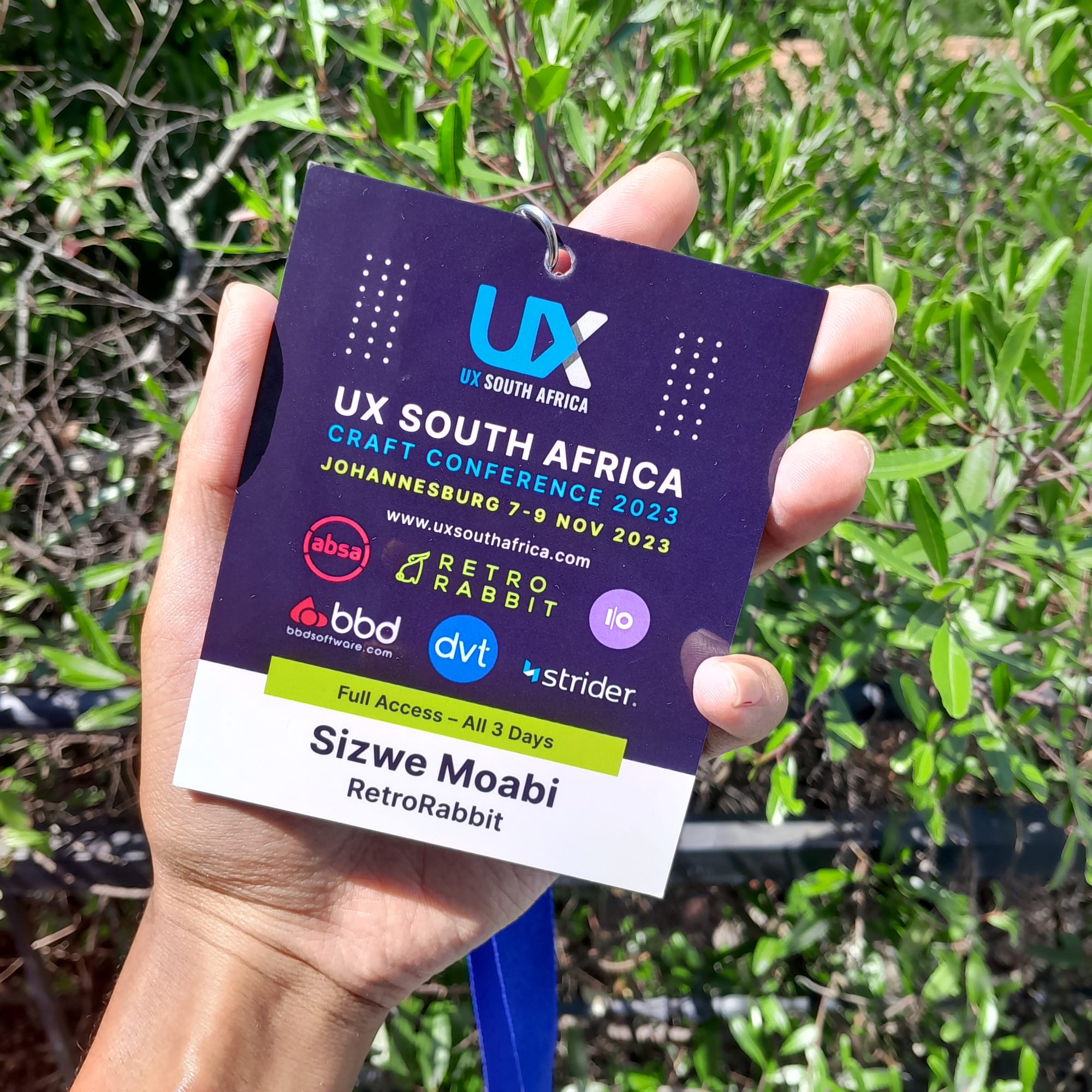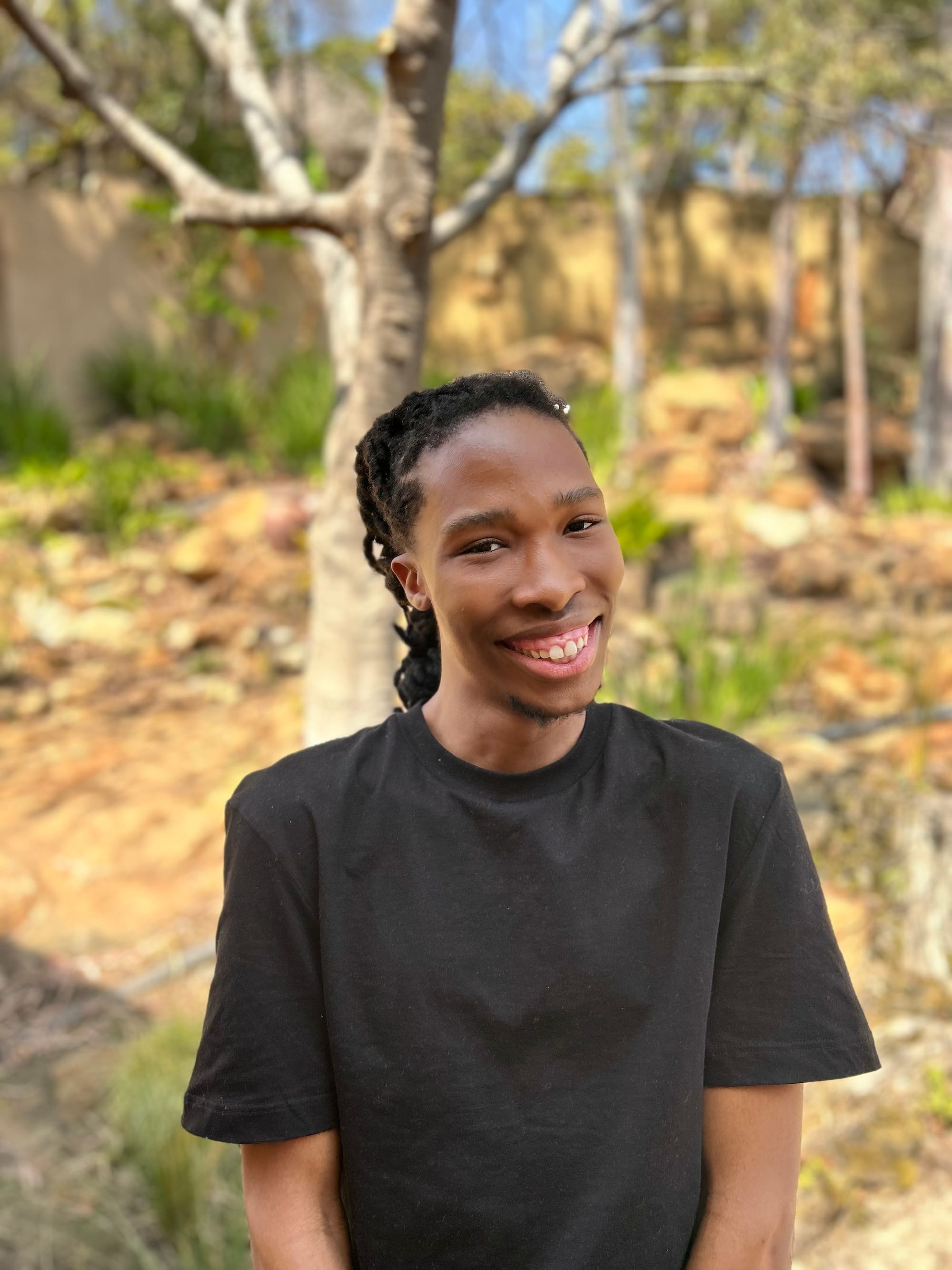My Insightful Experience At UXSA
I recently had the pleasure of attending a design conference in Johannesburg. This gave me a lot of valuable insight and taught me quite a few things which — I will admit — were so much more interesting when told from new perspectives. That conference is none other than UX Craft South Africa.
Hosting its 9th annual meet-up at Blandford Manor, this was a chance to get to meet other designers, seniors and even tech workers from other levels of businesses. I am here to share my experience with you and tell you all about my takeaways from this wonderful week of November 7 - 9th.

The Workshops
We started off by attending 2 workshops. The first was hosted by the incredible Sean Buch about Speculative Design and Futures Thinking. Sean shed some light on how we as designers could imagine futuristic thinking; how the products we design years from now may be vastly different from what we’re currently seeing today; how innovative ideas are first mocked and ridiculed when they’re introduced (think of the computer and the car: today we're living in an automobile mobile world). Sean challenged us after his talk to get like him and imagine ideas of our own, be as realistic as we wish or go wild speculating on the future. We worked on brainstorming and discussing ideas, using Crazy 8s and Build it break it fix it, and think of how our world will be like in 10 years. We brainstormed ideas based on AI and how to adjust to an an ever increasingly digital world.
The last workshop presented by Danielle Goosen & Inez Patel was hosted by Absa and our job was to take a screen from a health app, and test it with blind users and see everything which noticeably needed improvement. It can be hard as designers taking accessibility into account when designing our visual products, but seeing how disabled people use them up close really hammered the point home. I suppose it’s easy to know that you should consider inclusivity when creating, but to actively practice it and see how the disabled are affected is an entirely different story. We learnt to empathise more with our blind users and how they handle navigating their screen readers on their phones compared to those without impaired vision.
The Conference
Day 2 and 3 of the conference was an educational class all on its own with talks from Rob Cowie, who is also at Absa. Cowie’s talk was on Effective Data Visualisation for Designers and how we can effectively visualise small or large amounts of data.
Mzwandile Makgoba used his interesting background in advertising and marketing to touch on the UX of townships and how language matters. Residents living in South African townships don’t experience the digital world the same compared to people living in cities and it is up to us to ensure that they trust the products that we as tech workers are selling.
The other 2 talks that I found quite interesting and highly thought provoking were from Estee Jacobs & Olivia Lucas. Both were centred around AI and how we as designers can use AI to enhance our research and gather more efficient results. AI may be fast transforming our world but at the end of the day we will still need a human touch to approve the work. I found it quite interesting that Olivia’s talk was about AI in an African context. How much is lost in algorithm? How much is lost in translation? How much is lost when UX researchers study the nuances of African languages with regard to AI? Olivia’s talk made me question how much we can trust artificial intelligence tools such as ChatGPT when it comes to sensitive and ethnic subjects and raised questions and solutions at the same time.
It was quite interesting getting to connect with the speakers of the conference who shared their tips and tricks on how to stay up to date with industry trends, why it’s important for us to embrace change as designers and how we can adapt to the ever-shifting world of tech. I especially liked their points on AI and how we as designers don’t have to completely fear AI and instead we can be cautiously optimistic about it.
Some of my key takeaways
Accessible design is important for all of us, not just disabled people. We all benefit from an inclusive world.
AI is making tremendous strides in our digital world already; yet in an African context, there’s still a frightening amount of development, research and sensitivity that still needs to be done. We need more focus and resources on teaching AI about the cultures and nuances of African citizens, and perhaps that could be another way of us reducing the misinformation crisis of today.
Townships are still in need of attention when it comes to UX. It is up to us as the people working in the corporate world to make sure that residents living in rural areas are not left behind when we create products.
It has been weeks since the conference ended but I still find myself thinking about Rob Cowie’s Effective Visualisation Design which has helped me take a step back and really think about how to visualise data when I’m designing with it. I know many of us as designers can relate when it comes to having to create graphs, charts and diagrams in a presentable manner.
UXSA was a successful and engaging conference filled with valuable talks, interesting questions and insightful minds. I wholeheartedly look forward to the next one and I cannot wait to see what more fascinating topics are discussed.
